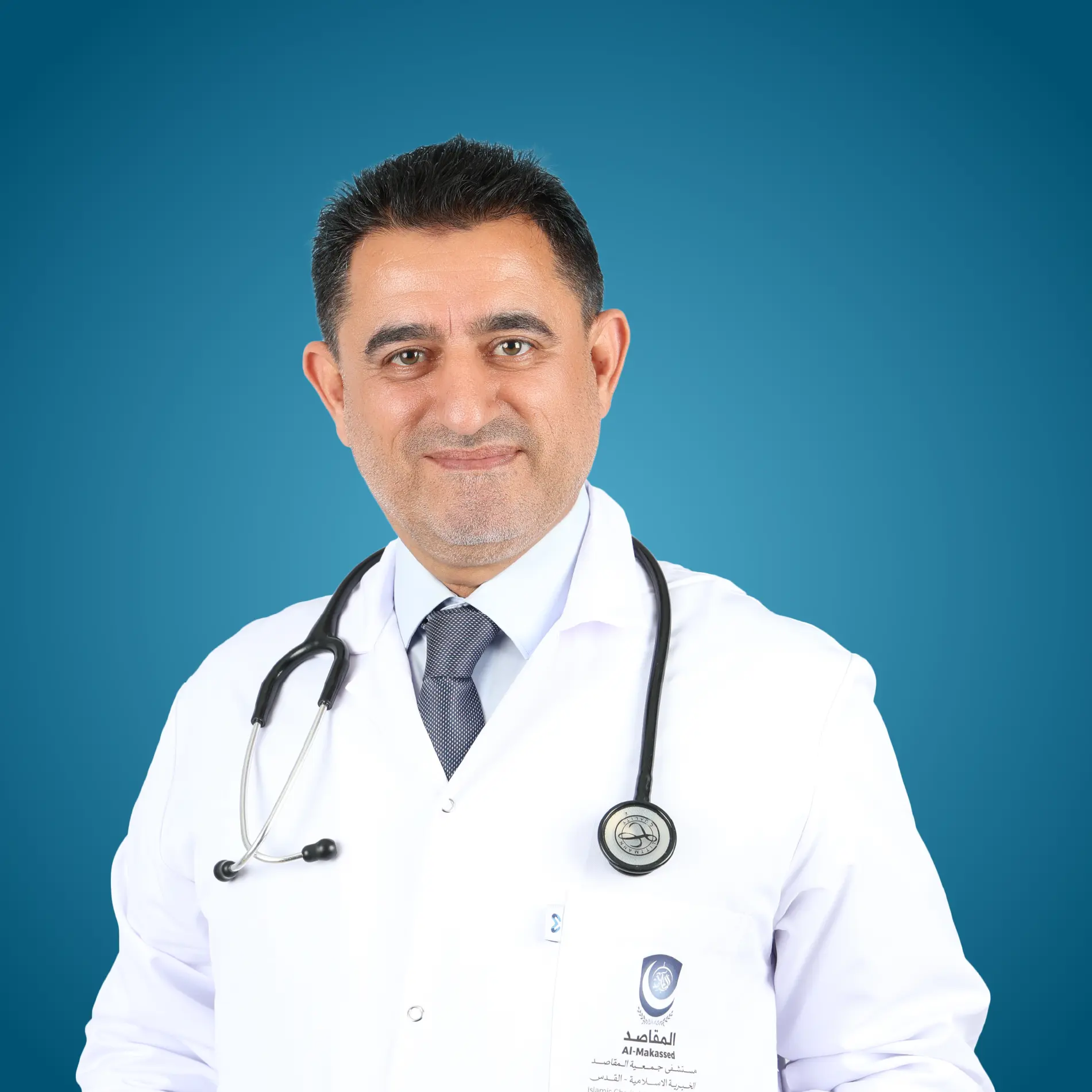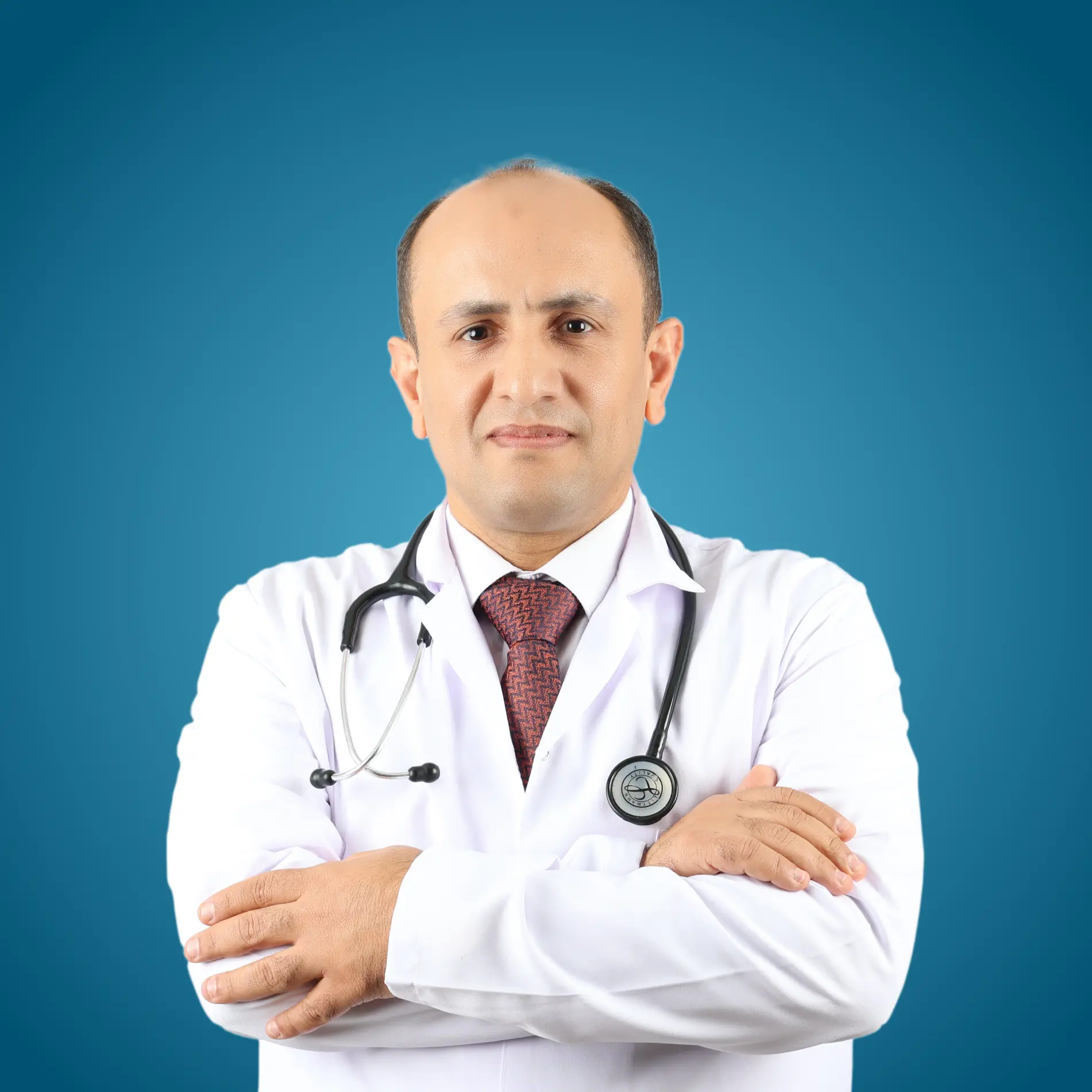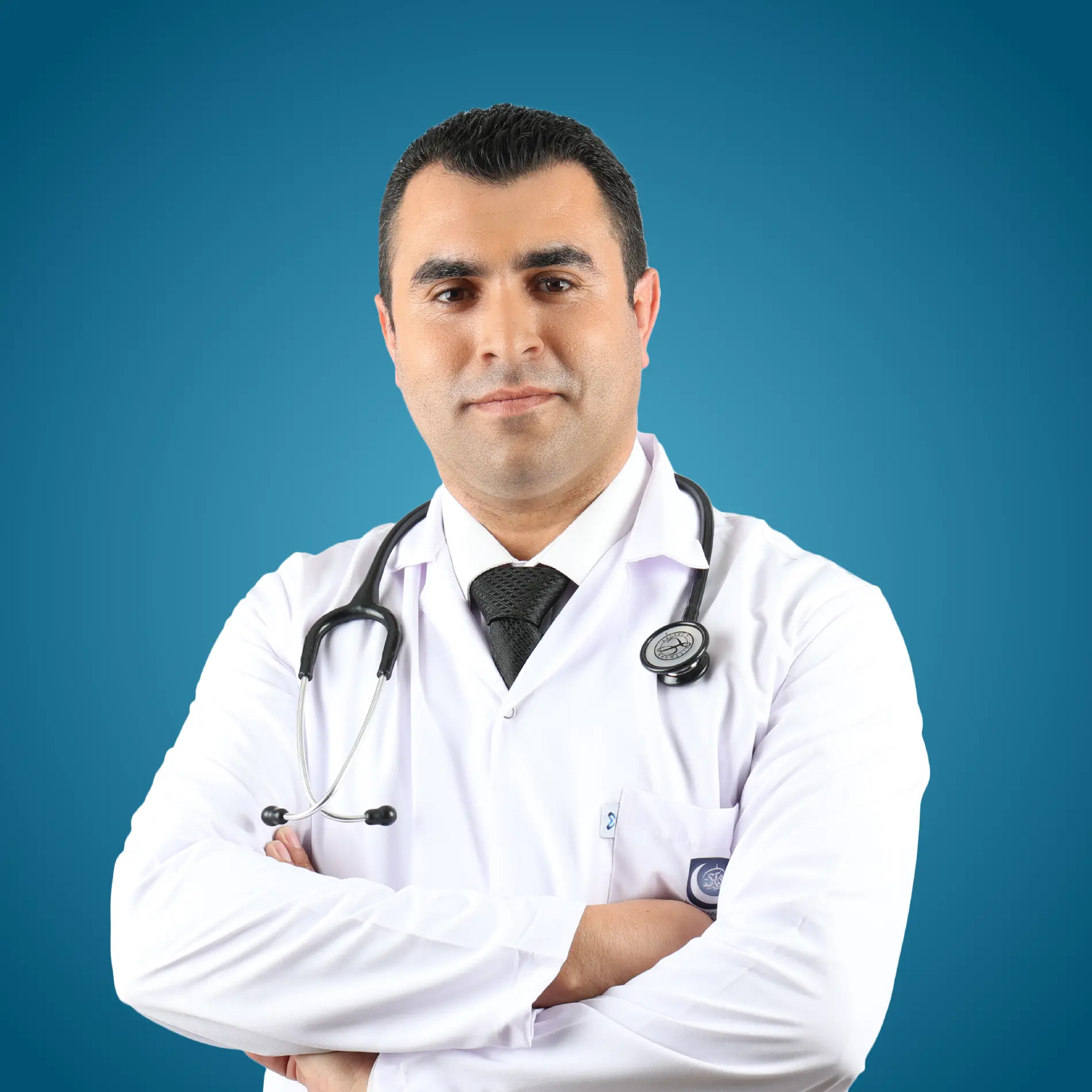Our Services
Book a Consultation
About Internal Medicine
The Department of Internal Medicine is one of the most important vital departments in Al-Makassed Hospital. It is a vital department and a fundamental pillar for the rest of the departments due to the diagnosis and treatment it provides to patients in the internal medicine department and other departments. It is headed by Dr. Ezz El-Din Hussein, Consultant of Internal Medicine and Cardiology.
This distinguished department includes an elite group of specialists and consultants in heart, lung, endocrine, neurology, rheumatology, digestive system, kidney, infectious and contagious diseases, in addition to a distinguished elite of resident doctors who are on a specialization system recognized by the Palestinian, Jordanian and Arab Medical Council and a skilled and distinguished nursing staff. There is a complete integrated department of heart diseases and vascular interventions where complex catheterizations are performed for the heart and peripheral arteries. It also includes the installation of stents for the coronary and peripheral arteries in addition to the installation of cardiac pacemakers and cardiac defibrillators from ICD and CRTD, Pacemaker, in addition to non-interventional services such as echocardiography, stress examination and color tomography of the coronary arteries.
The department has 37 beds in addition to 13 beds in the cardiac care unit. The department also has two daily outpatient clinics throughout the week except for official holidays. Patients are admitted to the department from the emergency department and outpatient clinics, as well as referrals from hospitals operating in the West Bank and Gaza Strip. It also cares for patients admitted to the department from various hospital departments as a consultative process or a comprehensive treatment process.
This integrated unit also includes supportive devices such as IABP and EECP in addition to the cardiac intensive care unit (CCU), which includes 12 beds.
The department includes the following branches and units:
Pulmonary Diseases Division: It is an integrated system that includes the bronchoscopy unit, including interventions and biopsies through bronchoscopy. It also includes a complete Pulmonary Function Unit (PFT) and a sleep study unit (Polysomnography) to diagnose and treat lung diseases and sleep disorders. This division supervises intensive care.
Neurology Department: It includes the brain mapping unit, peripheral nerves and muscle mapping, and it deals with emergency stroke cases by giving TPA to dissolve the clot, which results in immediate improvement of the patient and protects him from weakness of the limbs or paralysis. The unit receives complex cases from all over the country.
Digestive System Department: In which all interventions are performed, from upper and lower endoscopy, dealing with esophageal varices and tumors, as well as endoscopy of the bile duct, installing stents in the bile duct, and recently installing a balloon in the stomach, for weight loss and other interventions.
The leading and distinguished Rheumatology Department, which includes the fellowship program in rheumatology, recognized by the Palestinian Medical Council.
Endocrinology Department: Which supervises the diagnosis and treatment of many endocrine diseases, including diabetes and its complications.
Nephrology Department: Dealing with acute and chronic renal failure cases, and performing kidney biopsies and reading with a normal and immune endoscope for diagnosis and treatment. It also includes a (kidney dialysis) unit and a plasma exchange service, which is a basic treatment for some serious and complex diseases.
Infectious and Communicable Diseases Department: It is the safety valve for all departments for the important treatment it provides and the qualitative addition. Other subspecialties such as blood diseases are dealt with, such as performing a bone marrow biopsy and diagnosing and treating blood diseases. This department supports dermatology clinics, psychiatric diseases, the tissue department, the laboratory, the radiology department, interventional radiology and other distinguished departments.
The Department of Internal Medicine participates in the specialization program for resident doctors in order to obtain the Jordanian and Palestinian Medical Council certificate, where doctors are trained in the department as a basic requirement within this program.
The Department of Internal Medicine covers all aspects of internal medicine, which include:
1-Medical problems in general.
2-Heart diseases.
3-Rheumatism diseases.
4-Thyroid diseases and diabetes.
5- Respiratory diseases and sleep disorders.
6- Stomach diseases consultations.
7- Dermatology clinics.
Diagnostic and therapeutic procedures:
1- Cardiac catheterization and surgical vascular correction.
2- Balloon angioplasty and stent implantation inside the coronary arteries.
3- Cardiac vessel endostomy.
Balloon angioplasty and stent implantation on the extremities as well as in the blood vessels.
5. Temporary pacemaker implantation.
6. Permanent pacemaker implantation.
7. Internal defibrillator implantation.
8. Echocardiography and beyond.
9. Surgical esophageal echocardiography.
10. Filter implantation.
11- Stress test using the “Tredmel” method
12. EEG.
13- Insertion of a pulmonary examination tube.
14- Lung function tests.
15- Sleep laboratory.
16. Minimally invasive surgery. 17. Upper and lower endoscopy
Specialist doctors



